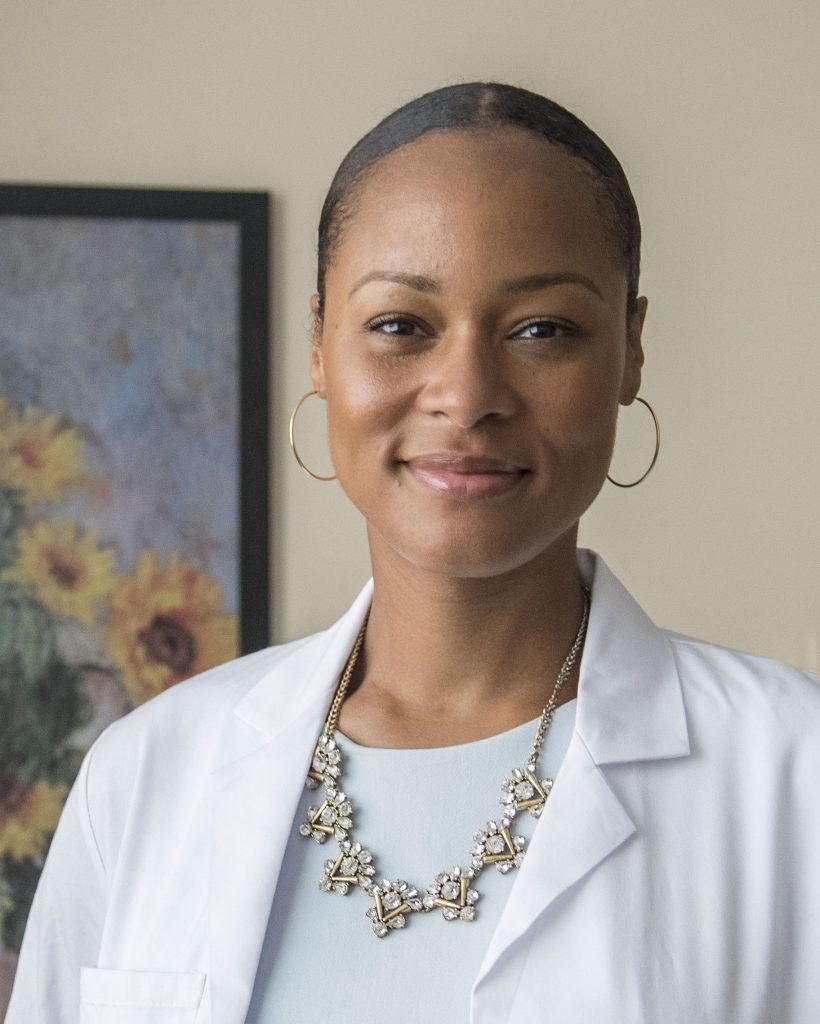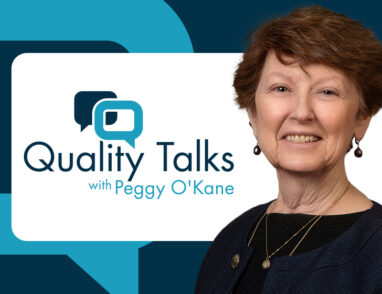Meet the Quality Talks Speaker: Equity Researcher Marcee Wilder, MD
April 18, 2021 · Matt Brock
NCQA caught up with Marcee Wilder, MD, MS, MPH, just before her compelling presentation at Quality Talks 2021. There’s just one day left to register. Get your seat now.
Join us April 21.
Register now.
Marcee Wilder is an Assistant Professor at George Washington University in the Department of Emergency Medicine. She received a B.S. in Biology from Hampton University in Hampton, Virginia in 2003. After college, she completed a Master’s Degree in Public Health at Brooklyn College. She then worked for the New York City Department of Health and Mental Hygiene for 4 years as a research associate and served as an adjunct professor at the Brooklyn College School of Public Health. Although she found her work fulfilling, she left these positions to complete an M.D. at Howard University College of Medicine in Washington D.C. She fell in love with emergency medicine and returned to New York to attend residency at the Icahn School of Medicine at Mount Sinai. While at Mount Sinai, Marcee participated in and developed several clinical studies examining racial disparities in emergency department care. She then completed a 2-year clinical research fellowship at George Washington University, focusing on disparities and health outcomes.
Q: Is it a problem, does it make you feel somehow uncomfortable that because you are an African American, that somehow you have an obligation to talk about issues like health equity?
Dr. Wilder: It doesn’t. I feel like I’m honored to be able to start having these conversations. I mean, 15 years ago, we weren’t having these conversations on a national stage. We weren’t discussing race and racism in medicine, the way we are now. It was so taboo to talk about because, if you talk about racism in medicine, then you have to point the finger at who could possibly be proponents of that and furthering that. And no one likes to be uncomfortable, but I think it’s amazing we’re having these uncomfortable talks now, and I don’t feel burdened by participating in them. I’m glad we’re even having them. I think that they’re important and that they’re going to push us forward in a wonderful way.
Q: Certainly, there are countless stories to illustrate what led us to those conversations. You have a few of your own to tell at QualityTalks. 
Dr. Wilder: Unfortunately our entire structure, media images, they paint certain marginalized groups in a different light. So, before anyone goes into medicine or matriculates into medical school, they already have their implicit biases that are built on their upbringing and their exposure.
And so here I am an intern in emergency medicine, fresh out of medical school. Might I add that I went to a historically black medical school, Howard University College of Medicine. And so I was around nothing but excellent physicians of color who were first in their field, giants in their field. And so unfortunately my vision of medicine was skewed because I saw these amazing doctors giving wonderful care to marginalized communities.
Then I got to the real world, for training and the first instance of overt racism that I was privy to was a young, Hispanic woman in severe abdominal pain. Her heart rate was very high. She appeared extremely uncomfortable. And as an intern, I knew that she was sick, something was wrong. So, I immediately went to present her to my attending to discuss her case so that we could get the ball rolling for her care. And he turned around to me and he said, “Wilder, how do you know she’s really in pain because this might just be status hispanicus?”
I was so taken aback. I think I just froze. And I remember looking at him and as I was trying to formulate my thoughts to speak to what he had just said to me, a PA in the same room and a chief resident in my program turned around, we’re in the same room said, “Oh yeah, because that’s really a thing.”
I was the only person of color in the room. And I was now listening to three clinicians, tell me that status hispanicus was a thing. Something that I should be mindful of, that Hispanic patients somehow were going to feign their pain for whatever secondary gain. Or they’re being overly histrionic when they present to the emergency department. And this was a phenomenon that was just known. And I just didn’t know about it. I knew that it was wrong. I knew that it was affecting care and I was upset that it was going to affect the care of my patient. Unfortunately, that day I couldn’t do much for her because the power dynamic was different. I was a trainee, and my attending made the clinical decisions, and I didn’t know, or have the verbiage or the knowledge to be able to push back against what he was saying and explained to him how wrong he was. I do now, which is why I’m happy to be having this talk.
Q: Even though you were just out of medical school restricted by your role as an intern, you were not that new to health care. Even then, you knew better.
Dr. Wilder: I was in public health for many years before I decided to matriculate into medical school after college. I wasn’t a young person afraid of conflict or afraid of speaking my mind, not at all, but when you’re a trainee and you’re so new to the training program and you know that you don’t have the clinical knowledge, it’s hard to fight back against things that just feel wrong. Especially then I hadn’t bloomed into my research in health disparities yet to understand the notion of how he was playing into a terrible disparity on pain management in acute emergency department patients. Or else I would’ve just recited that data to him, but I didn’t have that knowledge yet. Or that confidence to be able to discuss how what he was doing was overtly racist.
Q: At the beginning of this discussion, you started with, I’m happy we’re having these discussions. What was the trigger for the rising tide of these discussions? George Floyd play a role?
Dr. Wilder: I think it started a few years before George Floyd. I think that in, especially in medicine, not just emergency medicine, internal medicine, I think there was a slow push for diversity and inclusion. We were seeing studies that show that African-American patients had better outcomes when they had an African-American physician taking care of them. We were seeing studies that show that there were racial disparities in healthcare, more than just the huge Landmark Institute of Medicine’ Unequal Care publication, 2003. I think we were slowly seeing a small ball rolling through medicine since 2003, when that publication became public and mainstream.
And I think George Floyd made it an explosion. Now, every medical society felt rushed to make a statement to say, we stand against structural racism. Structural racism is a problem. I think it became almost standard that you had to say something because of our culture now and cancel culture, which on one hand is good, but on other hand is problematic. Everyone felt rushed to make a statement, even if it wasn’t genuine. And so I feel like George Floyd accelerated what was already happening. Is that beneficial for us right now? Possibly. I think it’s definitely furthering these conversations. I’m just hoping that real change comes about from them. It really doesn’t matter if Uber says black lives matter, or if Target hangs black lives matter signs from their stores. If, when my husband leaves my house, he can be shot.
Q: These issues are so..
Dr. Wilder: Complex.
Q: Complex, difficult and uncomfortable. You appreciate people speaking out at this point, but you also think these organizations and the health care industry needs to put their money where their mouth is.
Dr. Wilder: I appreciate the allyship from pillars and giants in medicine. I appreciate everyone starting their own diversity inclusion chapters at their institutions. I appreciate people having these conversations and making steps toward making sure care is equitable for all of their patients. But If you’re starting a diversity and diversity inclusion process at your institution, who are you paying to do that labor? Are you making sure that faculty have hours to pursue these priorities, or are they are doing this labor for free? Because then, you’re just perpetuating free labor and people of color. It’s hard and it’s complex, but literally putting their money where their mouth is, actually would matter a lot.







